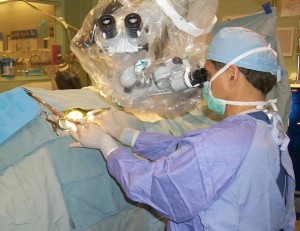Lack of Sleep: What to do when you Travel
 April 2023 I have always made sleep an important part of my life. When I am training for an upcoming triathlon, focusing on getting plenty of sleep has always been part of my bag of “tricks” to be successful. I was between races and had been recently neglecting sleep when I was asked to travel to the west coast, three times zones away. I noticed how exhausted I was when I returned home. The first day I could hardly wake up, I was tried all day and that night I couldn’t get to sleep until after 1:00 pm. Clearly I was suffering from classic jet lag. It improved over several days but it brought to my attention, again, about how important getting proper sleep is to our health.
April 2023 I have always made sleep an important part of my life. When I am training for an upcoming triathlon, focusing on getting plenty of sleep has always been part of my bag of “tricks” to be successful. I was between races and had been recently neglecting sleep when I was asked to travel to the west coast, three times zones away. I noticed how exhausted I was when I returned home. The first day I could hardly wake up, I was tried all day and that night I couldn’t get to sleep until after 1:00 pm. Clearly I was suffering from classic jet lag. It improved over several days but it brought to my attention, again, about how important getting proper sleep is to our health.
Here are a few tips I researched that might help the weary traveler to get better sleep both at home and on the road.
While traveling, we often push ourselves to our physical limits, almost to the point of exhaustion and deprive ourselves of sleep. Because of this, we may experience symptoms of sleep deprivation including headaches, indigestion, decreased concentration and ability to focus, and irritability. It is imperative that we give our bodies the rest and relaxation it needs each night. The main reason for sleep is not just to feel better but your body uses this time to rebuild and also produce hormones, such as cortisol, that we need to live. Lack of any of these hormones due to poor sleep patterns can lead to chronic fatigue, depression and occasionally more serious diseases.
Here are some tips to keep your sleep cycle on track. Avoid early morning flights as they may deprive you of sleep the night before. Schedule your travel so that you arrive at your destination in time for a full night’s rest. Pack comfort items such as eye shades, lip balm, bottled water, earplugs, and moisturizer. Plan to wear loose clothing on the flight and dress in layers for warmth and comfort.
If possible start to preset your biological clock five days before your flight. If you are flying east go to bed earlier and wake up earlier. If flying west, try to stay up later and get up later. Once you are seated on your flight, reset your watch to the time zone of your destination. Keep yourself hydrated to counteract the dry cabin atmosphere. Try to walk up and down the aisles to aid in blood circulation. Do a few stretches to replace and refresh the air in your lungs. Eat lightly before and during the flight. Minimize alcoholic beverages. Consider caffeinated beverages during the day but avoid use within 4-6 hours before bedtime as sleep onset may be delayed.
Once you check into your hotel, request a room away from noise distractions such as stairways, vending machines, and dining rooms. Rooms with eastern and southern exposure in the mornings will leave you more alert in the morning. Try to acclimate yourself to the time zone you are in and avoid naps. Try to stay awake the entire day so you do not ruin your night’s sleep. Go to bed and awaken at the appropriate time for the new time zone. Try to get outdoors as soon as possible as this will help re-orientate your sleep patterns.
will leave you more alert in the morning. Try to acclimate yourself to the time zone you are in and avoid naps. Try to stay awake the entire day so you do not ruin your night’s sleep. Go to bed and awaken at the appropriate time for the new time zone. Try to get outdoors as soon as possible as this will help re-orientate your sleep patterns.
I hope you try a few of these tips. Occasionally, if you are having a hard time getting to sleep natural herbs and supplements can help many people to relax and thereby induce sleep.
Here is a brief list to consider. As with all herbs and supplements consult with your doctor if you are on prescription medications as sometimes these may produce unwanted interactions.
- 5-HTP – As a supplement, 5-HTP is derived from Griffonia seeds. It is the first step in the conversion of the amino acid, L-tryptophan, to serotonin, an inhibitory neurotransmitter. Further conversion leads to melatonin.
- GABA – This is an inhibitory neurotransmitter that the body can make from the B-vitamin, inositol. It helps to reduce stress and anxiety that could be affecting sleep.
- Melatonin – This is a naturally occurring hormone produced in the pineal gland from the conversion of tryptophan to serotonin, and then to melatonin. Exposure to full-spectrum light increases its production.
- Tryptophan – This is an essential amino acid that the body can convert to melatonin, by way of serotonin, an inhibitory neurotransmitter.
- Hops – This herb is often combined with other herbs (chamomile, passionflower, skullcap, valerian) for insomnia. It also helps to reduce anxiety.
- Skullcap – A member of the mint family, this herb may help to reduce inflammation, as well as being useful with insomnia and anxiety.
- Valerian – This herb smells like dirty gym socks! It does work with insomnia and anxiety, but it is a strong herb and should not be used for extended periods of time, especially if there is an existing liver condition.




 Dr. Maroon received an athletic scholarship to Indiana University in Bloomington, Indiana where as an undergraduate, he was named a Scholastic All-American in football. Dr. Maroon has successfully maintained his personal athletic interests through participation in 9 marathons and more than 72 Olympic-distance triathlon events. However, his greatest athletic accomplishment is his participation in 8 Ironman triathlons (Hawaii – 1993, 2003, 2008, 2010, 2013; Canada – 1995; New Zealand – 1997; Germany – 2000), where he usually finishes in the top 10 of his age group. Recently, in July 2012 and 2013, he finished second and third, respectively, in his age group in the Muncie, Indiana half Ironman triathlon. In October 2013 he completed his 5th World Championship Ironman in Kona, Hawaii.
Dr. Maroon received an athletic scholarship to Indiana University in Bloomington, Indiana where as an undergraduate, he was named a Scholastic All-American in football. Dr. Maroon has successfully maintained his personal athletic interests through participation in 9 marathons and more than 72 Olympic-distance triathlon events. However, his greatest athletic accomplishment is his participation in 8 Ironman triathlons (Hawaii – 1993, 2003, 2008, 2010, 2013; Canada – 1995; New Zealand – 1997; Germany – 2000), where he usually finishes in the top 10 of his age group. Recently, in July 2012 and 2013, he finished second and third, respectively, in his age group in the Muncie, Indiana half Ironman triathlon. In October 2013 he completed his 5th World Championship Ironman in Kona, Hawaii.